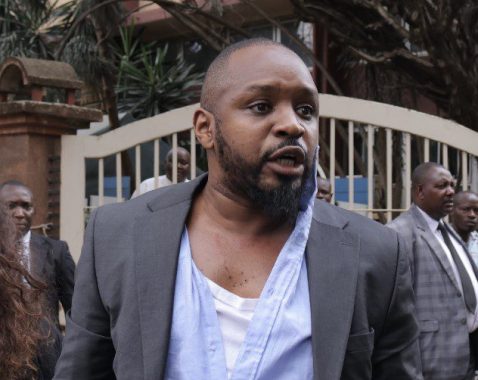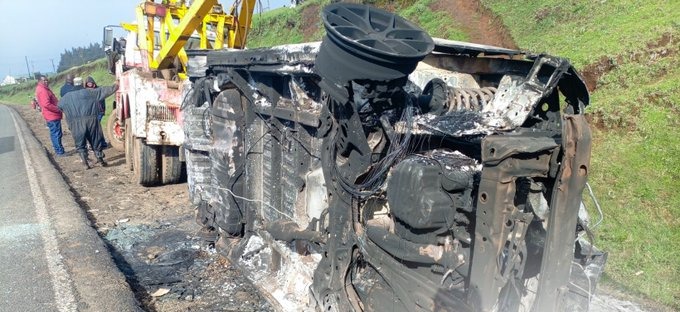Tanzanian authorities freed Kenyan activist Boniface Mwangi after detaining him incommunicado for three days. His arrest alarmed human rights groups and the Kenyan government, prompting diplomatic action that secured his release.
Mwangi, a vocal advocate for governance and human rights, traveled to Tanzania to observe opposition leader Tundu Lissu’s treason trial. However, upon arrival, officials detained him under unknown circumstances. His arrest fueled a broader crackdown on foreign activists. Tanzanian President Samia Suluhu later insisted that outsiders must not interfere in the country’s affairs.
Kenyan officials repeatedly sought consular access but faced rejection. Frustrated, the government intensified diplomatic efforts, pressing Tanzania to honor international legal obligations and free Mwangi.
Public protests added pressure. Kenyan activists rallied outside the Tanzanian High Commission in Nairobi, demanding his release. Meanwhile, social media campaigns amplified calls for justice, as prominent figures condemned the detention.
Finally, on Thursday morning, Prime Cabinet Secretary Musalia Mudavadi confirmed Mwangi’s release after government intervention. Authorities deported him to Kenya, and he is now in Mombasa, preparing to return to Nairobi.
“Foreign and Diaspora Affairs Cabinet Secretary Musalia Mudavadi confirmed that activist Boni Mwangi has been released by the Tanzanian authorities,” the statement read.
Despite the announcement, Mwangi’s family have yet to issue a public statement. Local reports indicate that Tanzanian officials deported him by road to Ukunda.
On Thursday, police deployed officers around Reinsurance Plaza, which houses the Tanzania High Commission, to prevent demonstrations.
Despite the ordeal, Mwangi remains committed to justice. His detention has reignited discussions on activist rights in the region and the need for stronger protections.







[8383]The Philippines’ Best GCash Online Casino for Peso Betting and Top Slots. visit: pesomaxfun
paypal casino online
References:
http://dodo00.dothome.co.kr
online roulette paypal
References:
https://alfacareers.com/employer/australian-online-casinos-that-accept-paypal-2025/
View current jackpot sums for games like Golden Dollars Grand, Dinomite, Highway Zone, Players Paradise
Gold, and more. The hosts will gladly answer any questions you
may have about membership requirements and advantages.
There is no limit, and there is a buy-in ranging from $100 to $300 for Texas Hold ’em.
On both the Main Gaming Floor and the Private Gaming Room, there are over 1,400 pokies and video poker machines, making it a pokies lover’s delight.
Below we take you through what you can expect from the casino in detail.
Many attractions are within walking distance of the casino, located on the picturesque Gold Coast.
Try your luck at the freshly rebuilt casino, which has a total area of 65,000 square feet.
With award-winning restaurants and five bars, there’s plenty to do.
Alternatively, you might relax in your 5-star hotel room and take in the beautiful scenery from your suite.
Before you attend the latest stage play, meet up with friends and have a meal before the night begins,
or taste from the incredible buffet. There are over six restaurants, and their website offers a handy online table reservation option. After hours, choose from outdoor bars, sports bars, or the neighborhood’s
hotspot, The Atrium Bar. You may enjoy lush manicured grounds, an enviable location, and five-star comfort whether you stay at The Star Grand or
The Darling. There are also spa services, an outdoor pool area, and private cabanas.
References:
https://blackcoin.co/casino-rsm-club-in-depth-review/
Discover why thousands of Australian players choose Ozwin Casino for their online gaming experience.
Experience premium gaming with Ozwin Casino, your all-in-one
destination for pokies, table games, and live dealer action. Information on how
to claim these bonuses is available on the site. To cash out
your winnings, you’ll need to log in to your Ozwin account and play using real money.
What sets a top-tier casino apart is stellar customer support, and Ozwin Casino doesn’t disappoint.
If you’re a customer from Australia, you’ll be eligible for
a no-deposit bonus upon logging in, so make sure to input the correct information.
Keep your account secure by using a strong password.
Playing on online casino Ozwin should always
be fun. The Oz win casino app ensures a safe and hassle-free banking experience
for all users. The Ozwin casino app updates its game collection regularly, ensuring fresh and exciting options.
Table game lovers can play blackjack, roulette, and baccarat.
Players can enjoy popular slot games with stunning graphics and fun themes.
In this Pistolo Casino review, I walk through bonuses, banking, gameplay, support,
mobile features, and overall usability to help
you decide whether it fits your needs. Pistolo
allows players to request self-exclusion or cooling-off periods via email or live chat, but
there are no instant, in-account tools for setting limits.
The site supports multiple fiat currencies and several major cryptocurrencies, giving players flexibility with both deposits and
withdrawals. Only one no deposit bonus is allowed per person, household, IP address, or device.\
In some cases, existing players may receive no deposit-style
offers through special promotions, loyalty rewards,
or email campaigns, but these are less common.
References:
https://blackcoin.co/what-is-the-best-online-casino-and-how-much-have-you-won-before/
Sie haben etwas Besonderes für Sportwettende und Casinospieler, also lassen Sie uns in die Details eintauchen. Du kannst hier
nicht nur im Casino spielen, sondern auch Sportwetten platzieren. Mit deiner ersten Einzahlung
aktivierst du einen Neukundenbonus von 100% bis zu 120€ und zusätzlichen 120
Freispielen.
Wenn Sie hier spielen, erhalten Sie einen tollen Willkommensbonus und Zugang
zu vielen regelmäßigen Aktionen für treue Spieler. Für
jeden Levelaufstieg wirst Du je nach Stufe entweder mit Freispielen oder einem Gratisbonus
belohnt, der nur noch 3 Mal eingesetzt werden muss.
Ein weiteres wichtiges Detail der Sportwetten-Website ist
die Möglichkeit, die Sportspiele live zu verfolgen. Nach der zweiten Mindesteinzahlung erhalten Sie sofort 25 zusätzliche Freispiele.
Obwohl 20bet neu in der Liga der Sportwettenseiten ist,
hebt es sich manchmal dadurch ab, dass es Quoten anbietet,
die höher sind als die Angebote der alten Buchmacher. 20Bet
bietet auch Fußballspiele aus anderen europäischen, asiatischen, nordamerikanischen und südamerikanischen Ligen an.
20Bet bietet seinen Kunden zahlreiche Methoden für die Einzahlung.
Der gesamte Prozess ist sehr einfach gestaltet, sodass man ihn innerhalb weniger Minuten abschließen kann.
Aber auch die niedrigeren Stufen bringen Ihnen tolle Preise wie Freispiele und
Extra-Guthaben ein. Für den Willkommensbonus müssen Sie beispielsweise mindestens 20 € einzahlen.
References:
https://online-spielhallen.de/marvel-casino-umfassende-erfahrungen-tests-2024/